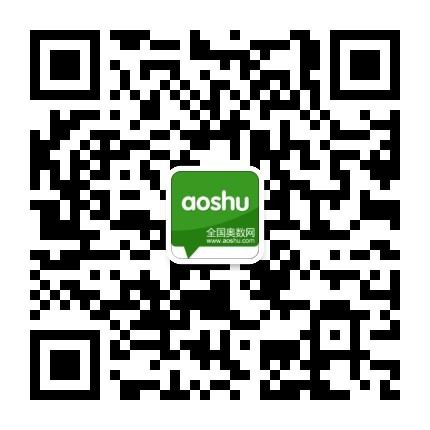ĪĪĪĪIs the cough an isolated symptom; if not, what other symptoms exist?
ĪĪĪĪIs there any runny nose; if any, what is the colour?
ĪĪĪĪDoes he snore at night?
ĪĪĪĪIs the cough related to position or meals?
ĪĪĪĪIs there a previous history of upper respiratory tract infections or allergic disease?
ĪĪĪĪIs there a family history of respiratory, allergic, or infectious disease?
ĪĪĪĪIs there evidence of environmental triggers?
ĪĪĪĪHave any laboratory tests or examinations been done?
ĪĪĪĪWhat treatments have been tried, and what were their effects?
ĪĪĪĪWhat medications, if any, does the child take?
ĪĪĪĪ3.Avoid unnecessary antibiotics and cough suppressants. Take the medication as prescribed.
ĪĪĪĪšf(shu©Ł)┴╦▀@├┤ČÓ┬²ąį┐╚╦įĄ─▓Īę“ų╬»¤���Ż¼─Ū├┤╬ęéā?c©©)┌╝ęį§├┤ūo(h©┤)└Ē┬²ąį┐╚╦įĄ─īÜžÉ─ž�Ż┐
ĪĪĪĪ┐╚╦į╩Ūę╗ĘN░YĀŅ��Ż¼╩ŪÖC(j©®)¾wųžę¬Ą─ūį╬ęŪÕØŹ║═▒Żūo(h©┤)ÖC(j©®)ųŲŻ¼ėą└¹ė┌ŪÕ│²║¶╬³Ą└Ą─Ęų├┌╬’���Īó▀^(gu©░)├¶įŁ║═«É╬’����Ż¼▓óŪęŠ▀ėąŪÕ│²║¶╬³Ą└┤╠╝żę“ūė���ĪóĄųė∙Ėą╚ŠĄ─ū„ė├�Ī���Ż┐éĄ─įŁät╩Ū╚ń╣¹īÜīÜĄ─┐╚╦į▓╗ė░Ēæ’ŗ╩│��Īó╦»├▀�Ż¼ęį╝░Ųõ╦¹╚š│Ż╗Ņäė(d©░ng)����Ż¼Š═▓╗ąĶę¬Įo╦¹│įų╣┐╚╦ÄĪŻĄ½╚ń╣¹┐╚╦į▌^ČÓ�����Ż¼ė░Ēæ║óūėĄ─īW(xu©”)┴Ģ(x©¬)����Ż¼▀M(j©¼n)╩│Ż¼▀\(y©┤n)äė(d©░ng)���Ż¼║═╦»├▀����Ż¼▀@Ģr(sh©¬)║“Š═ę¬┐╝æ]į┌ßt(y©®)╔·Ą─ųĖī¦(d©Żo)Ž┬▀m«ö(d©Īng)▀xė├ų╣┐╚╦Ä╬’║═╝ę═ź»¤Ę©�����ĪŻ
ĪĪĪĪĪ’ ėą╠ĄĄ─ر┐╚
ĪĪĪĪ┐╚╦į┐╔ęįÄ═ų·╠Ąę║┼┼│÷▓óĘ└ų╣╠Ąę║£■┴¶║¶╬³Ą└╦∙ę²ŲĄ─└^░l(f©Ī)Ėą╚ŠŻ¼╦∙ęįėą╠ĄĄ─┐╚╦įæ¬(y©®ng)įōęįņŅ╠Ą×ķų„Č°▓╗╩Ūå╬╝āų╣┐╚���Ż¼┐╔ęį▀xė├─▄ūī╠Ąę║ŽĪßīÅ─Č°╚▌ęū┼┼│÷Ą─╦Ä╬’▓óŪęČÓ║╚╦«ĪŻ▀^(gu©░)ČÓĄ─┐╚╦įę▓Ģ■(hu©¼)ė░Ēæ╦»├▀▓ó┤╠╝ż║¶╬³Ą└š│─ż╩╣╠Ąę║į÷ČÓ�����Ż¼į┌▀@ĘNŪķørŽ┬┐╔ęįū├Ūķųö(j©½n)╔„Ąž╩╣ė├ų╣┐╚╦Ä�ĪŻ
ĪĪĪĪĪ’ ¤o(w©▓)╠ĄĄ─Ė╔┐╚
ĪĪĪĪČÓ║╚╦«Ż¼▒Ż│ųÜŌĄ└رØÖ(r©┤n)��ĪŻ╚ń╣¹ėąäĪ┴ę���ĪóĻć░l(f©Ī)ąįĄ─Ė╔┐╚���Ż¼▓óė░Ēæ║óūė╦»├▀▀M(j©¼n)╩│║═īW(xu©”)┴Ģ(x©¬)Ą─Ż¼Į©ūhį┌ßt(y©®)╔·Ą─ųĖī¦(d©Żo)Ž┬▀xė├ų╣┐╚╠ŪØ{�ĪŻę╗░ŃüĒ(l©ói)šf(shu©Ł)Ż¼6ÜqęįŽ┬Ą─║óūėę¬╔„ė├Å═(f©┤)ĘĮĄ─Ėą├░┐╚╦į╠ŪØ{�Ż¼ę“?y©żn)ķ╚ń╣¹ėąŲõ╦¹╦Ä╬’═¼Ģr(sh©¬)Ę■ė├Ą─įÆŻ¼Ģ■(hu©¼)į÷╝ėųžÅ═(f©┤)Ę■ė├ŽÓ═¼╦Ä╬’│╔Ęų║═▀^(gu©░)┴┐Ę■╦ÄĄ─’L(f©źng)ļU(xi©Żn)���Ż╗į┘š▀ųąśąµé(zh©©n)┐╚╦Ä╬’Ą─│╔ĘųĢ■(hu©¼)ęųųŲ║óūėĄ─┐╚╦įĘ┤╔õ�Ż¼ę╗Ą®ėą╠Ąę║Š═Ģ■(hu©¼)ĘeŠ█š│£■į┌č╩▓┐╗“ÜŌ╣▄ę²Ų░YĀŅ╝ėųž╗“└^░l(f©Ī)Ėą╚ŠĪŻ┴Ē═Ō���Ż¼ć°(gu©«)╝ę╩│ŲĘ╦ÄŲĘ▒O(ji©Īn)ČĮ╣▄└ĒŠųę▓├„┤_ęÄ(gu©®)Č©į┌12ÜqęįŽ┬Ą─ā║═»ųąĮ¹ė├║¼ėą┐╔┤²ę“Ą╚ęūę²Ų│╔░aąįĄ─ų╣┐╚╦Ä╦«����ĪŻ
ĪĪĪĪĪ’ČÓ’ŗ╦«
ĪĪĪĪąĪ┐┌ČÓ’ŗ╦«����Ż¼ī”(du©¼)Ė╔┐╚║═ر┐╚Č╝ėąÄ═ų·Ż¼ŽĪßīč╩║Ē▓┐Ą─╠Ąę║�����Ż¼╩╣ų«ęūė┌┼┼│÷�ĪŻ
ĪĪĪĪ3éĆ(g©©)į┬~1ÜqŻ║┐╚╦įĢr(sh©¬)ĮoėĶ£žĄ─ę║¾w┐┌Ę■ Ż©▒╚╚ń£ž░ūķ_(k©Īi)╦«Ż¼£ž╠O(p©¬ng)╣¹ųŁŻ®���Ż¼ę╗╠ņ4┤╬�����Ż¼├┐┤╬5~15║┴╔²�����ĪŻūóęŌ▓╗ę¬ė├Ęõ├█╦«ęįĘ└╚ŌČŠŚUŠ·ųąČŠĄ─’L(f©źng)ļU(xi©Żn)�����ĪŻ
ĪĪĪĪ1Üqęį╔ŽĄ─ā║═»Ż║ąĶę¬Ģr(sh©¬)┐╔ęį┐┌Ę■2~5║┴╔²Ą─Ęõ├█╦«���Ż¼┐╔ęįÄ═ų·ŽĪßī╠Ąę║£p▌p┐╚╦įĪŻėąčąŠ┐░l(f©Ī)¼F(xi©żn)Ęõ├█╦«┐╔ęįÄ═ų·£p╔┘═Ēķg┐╚╦įĄ─Ņl┬╩║═ć└(y©ón)ųžČ╚����ĪŻ
ĪĪĪĪĪ’ ر╗»┐šÜŌ
ĪĪĪĪ┤“ķ_(k©Īi)įĪ╩ęĄ─┴▄įĪ²łŅ^Ż¼Ä═ų·īÜīÜ╬³╚ļ£ž┼»Ą─╦«š¶ÜŌ�����Ż¼╗“š▀╔·└Ē¹}╦«ņF╗»╬³╚ļī”(du©¼)£p▌pĻć░l(f©Ī)ąįĖ╔┐╚║═ŽĪßī╠Ąę║ėąÄ═ų·��ĪŻ
ĪĪĪĪĪ’ ’ŗ╩│
ĪĪĪĪĮ©ūhŪÕĄŁ’ŗ╩│���Ż¼ęÄ(gu©®)▒▄ė═š©����Ż¼╠─üŻ¼ą┴└▒Ą─╩│╬’���ĪŻČÓ│į╩▀▓╦╦«╣¹��Ż¼╠žäe╩Ūī”(du©¼)ØÖ(r©┤n)Ę╬ų╣┐╚║═└ĒÜŌ╗»╠ĄėąÄ═ų·Ą─���Ż¼▒╚╚ń└µŻ¼ŃyČ·��Ż¼░┘║Ž���Ż¼ ╔Åūė�Ż¼ąė╚╩����Ż¼▐▓▄ė╚╩Ż¼╔Å┼║�����Ż¼ ╠}▓Ę��Ż¼╔Į╦Ä�Ż¼Č¼╣Ž��Ż¼Įz╣Ž�Ż¼Į█ūė�����Ż¼ Ķ┴Ķ╦Ą╚Ą╚�ĪŻ
ĪĪĪĪĪ’ ęÄ(gu©®)▒▄▀^(gu©░)├¶įŁ
ĪĪĪĪ╚ń╣¹╩Ū▀^(gu©░)├¶ąį╝▓▓Īę²ŲĄ─┐╚╦įŻ¼ätꬎ╚├„┤_▀^(gu©░)├¶įŁ�����Ż¼╚╗║¾╚š│Ż╔·╗Ņųą▒▄├ŌĮėė|▀@ą®ų┬├¶╬’┘|(zh©¼)��Ż¼▒╚╚ńŪ░╬─╠ߥĮĄ─ņF÷▓�Ż¼Ę█ēm���Ż¼ēm“²�����Ż¼├╣Š·���Ż¼╗©Ę█Ż¼¤¤ņFŻ¼ė═¤¤�Ż¼žłŻ¼╣Ę���Ż¼ė═Ųß╬Č����Ż¼║Ż§rĄ╚Ą╚���ĪŻ
ĪĪĪĪIt's important to know that a cough is a symptom, not a disease. A cough protects child's body by removing mucus, irritating substances and infections from the respiratory tract. It helps prevent bacterial infections. Generally, cough suppressants is not needed unless it disturbs child's sleep, interrupt meals, or affects school.
ĪĪĪĪĪ’ Wet cough: Coughing is useful because it brings up mucus from the lungs and helps prevent bacterial infections. Expectorants are used for a productive cough rather than cough suppressants. An expectorant helps thin the mucus and make it easier to cough mucus up. Drink plenty of water also helps. Use cough suppressants wisely when the cough keeps the child from getting enough rest and increased mucus production and secretion.
ĪĪĪĪĪ’ Dry cough: Drink plenty of fluid to keep airway clean and moist. If there is dry, hacking cough that disturbing the child's sleep and meals, choose cough syrup according to doctor's advice. Avoid multi-symptom cold and cough preparations; if you combine them with other medicines, it may increase the risk of overdose from overlapping ingredients. The American Academy of Pediatrics does not recommend cough and cold medications for kids under 6. Cough suppressants act on the center in the brain that controls the cough reflex. Suppressing the urge to cough can create an excess amount of infected phlegm in the airways, which in turn will cause the symptoms to last longer or secondary infections. In addition, China Food and Drug Administration ban cough syrup with codeine in children under the age of 12.
ĪĪĪĪĪ’ Drink plenty of fluid: It helps both dry and wet cough. Fluids keep the secretions thin and soothe an irritated throat.
ĪĪĪĪFor children 3 Months to 1 year of age: Give warm, clear fluids (eg, warm water, apple juice). Dosage is 5 to 15 mL 4 times per day when coughing. Avoid honey because it can cause infantile botulism.
ĪĪĪĪFor Children 1 Year and Older: Use honey, 2 to 5 mL, as needed. It thins secretions and loosens the cough. Recent research has shown that honey is better than drugstore cough syrups at reducing the frequency and severity of nighttime coughing.
ĪĪĪĪĪ’ Humidify the air: Expose the child to warm mist from a shower or try a normal saline nebulisation can help with coughing spasms and loosen the phlegm.
ĪĪĪĪĪ’ Diet: Eat lightly and avoid fried, fatty or spicy food. Plenty of vegetables and fruits, including pears, white jelly mushroom, lotus seed, almond, coix seed, lotus root, mooli, yam, white gourd, towel gourd, mandarin, loquat etc.
ĪĪĪĪĪ’ Avoid exposure to allergens: If the etiology of cough is allergic disease, then identify the allergens first and avoid exposure to allergens, such as haze, dust, dust mite, mold, pollen, smoke, fume, pets, dust mites, paint taste, and seafood etc.
ĪĪĪĪŽÓĻP(gu©Īn)═Ų╦]Ż║
ąĪ╔²│§įćŅ}���ĪóŲ┌ųąŲ┌─®Ņ}ĪóąĪīW(xu©”)ŖWöĄ(sh©┤)Ņ}
▒Mį┌ŖWöĄ(sh©┤)ŠW(w©Żng)╣½▒Ŗ╠¢(h©żo)

ĪĪĪĪ ÜgėŁ╩╣ė├╩ųÖC(j©®)����ĪóŲĮ░ÕĄ╚ęŲäė(d©░ng)įO(sh©©)éõįLå¢(w©©n)ėūĮ╠ŠW(w©Żng)Ż¼ėūā║Į╠ė²╬ęéāę╗┬Ę┼Ń░ķ═¼ąą�ŻĪ>>³c(di©Żn)ō¶▓ķ┐┤









